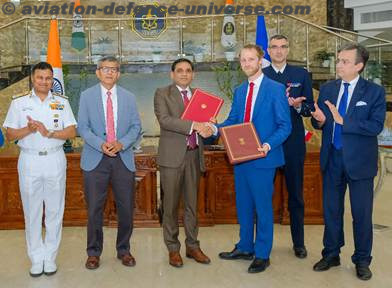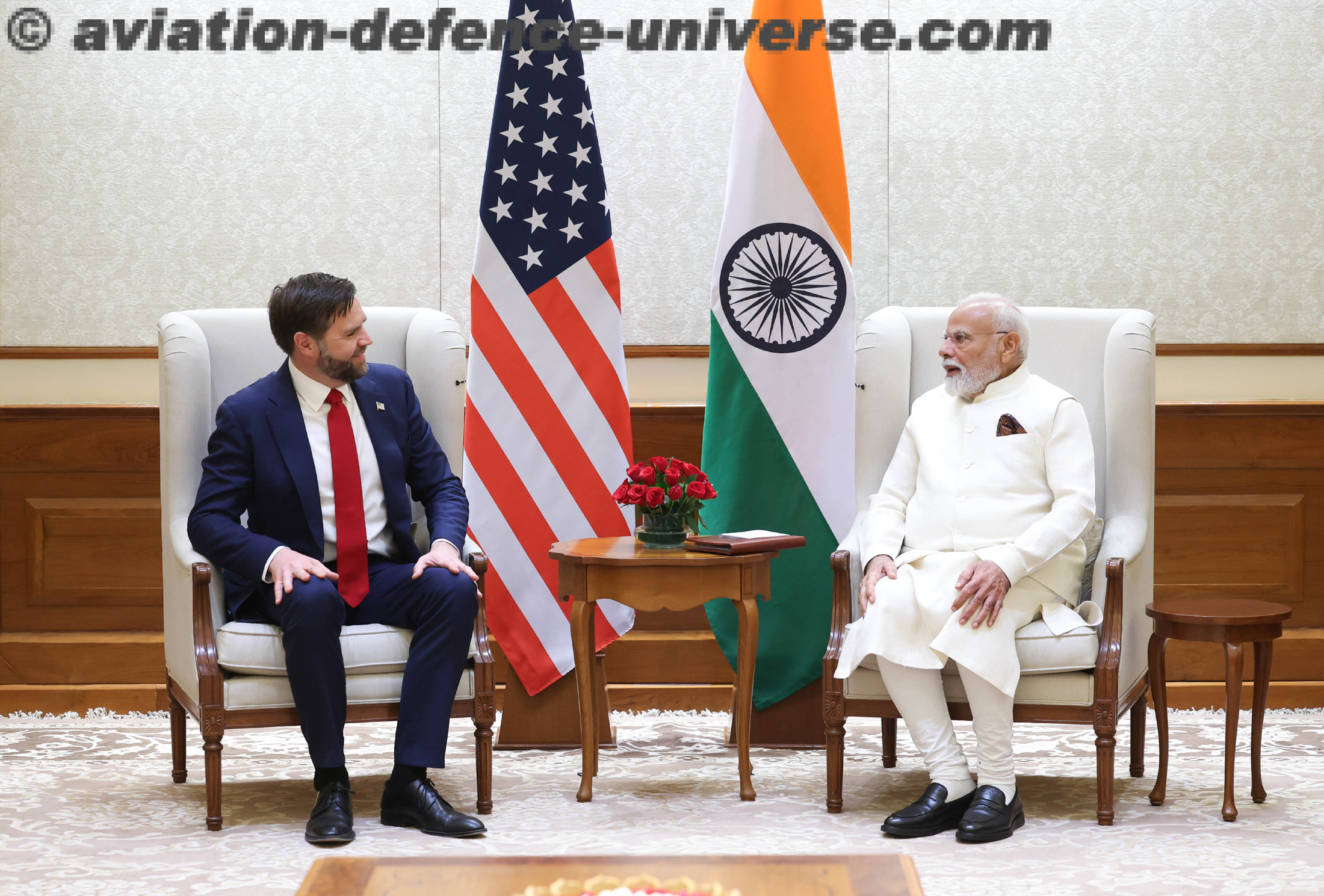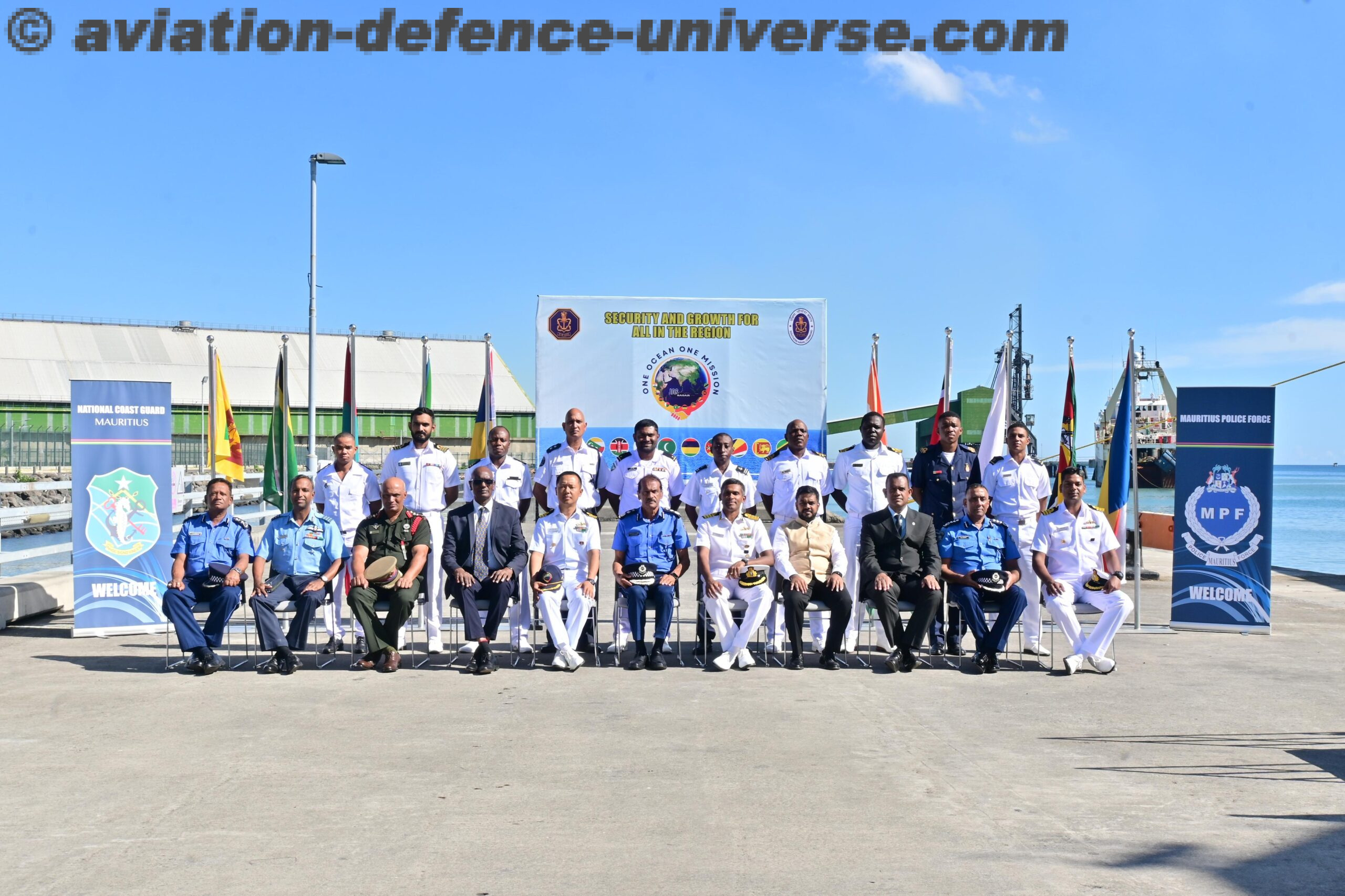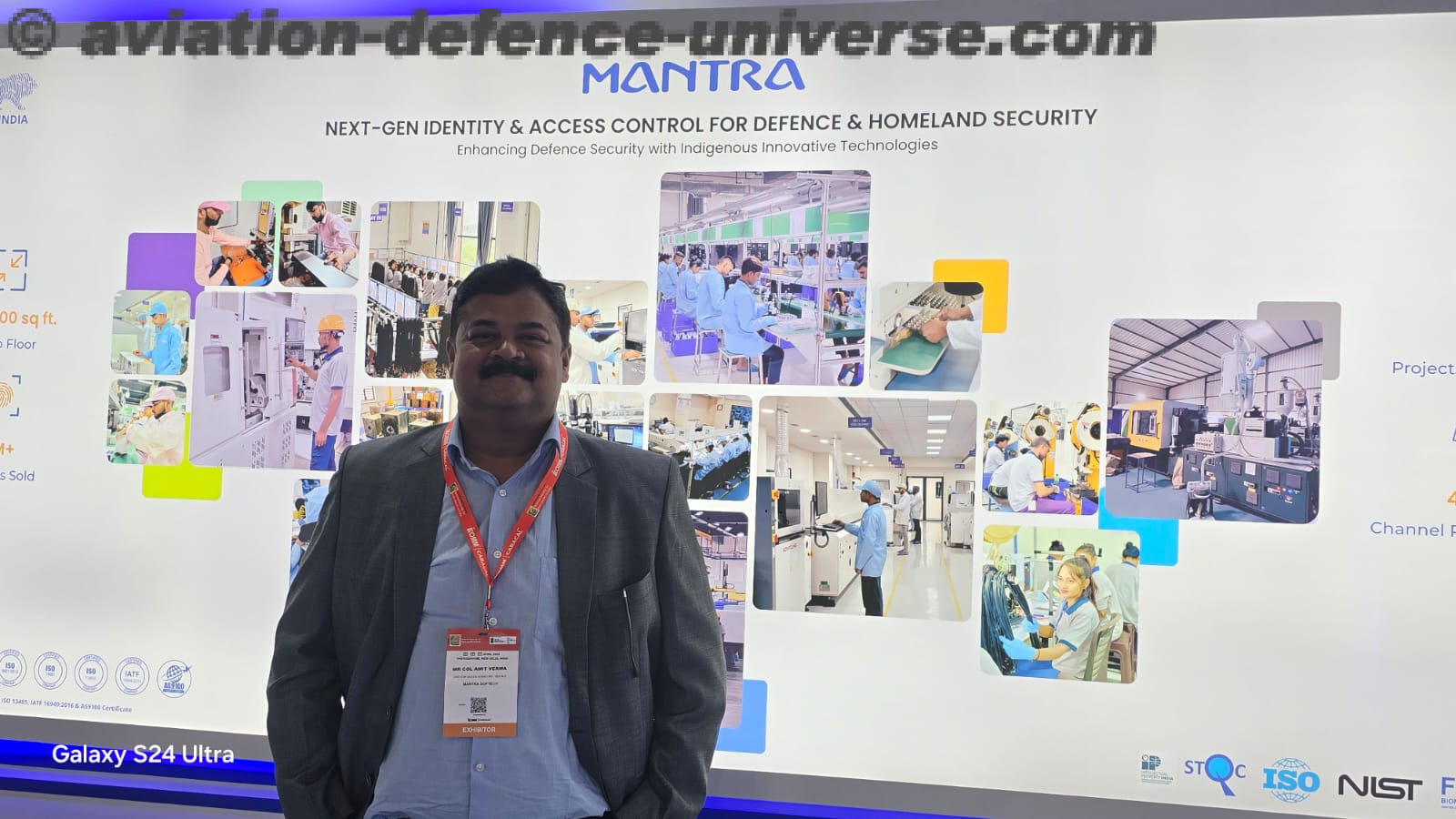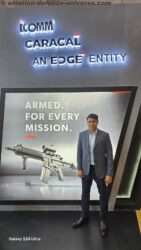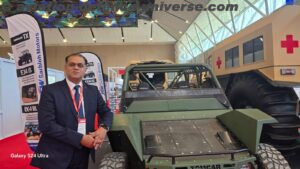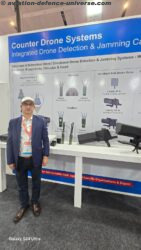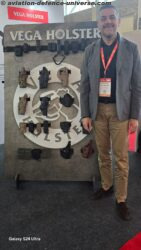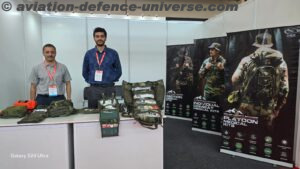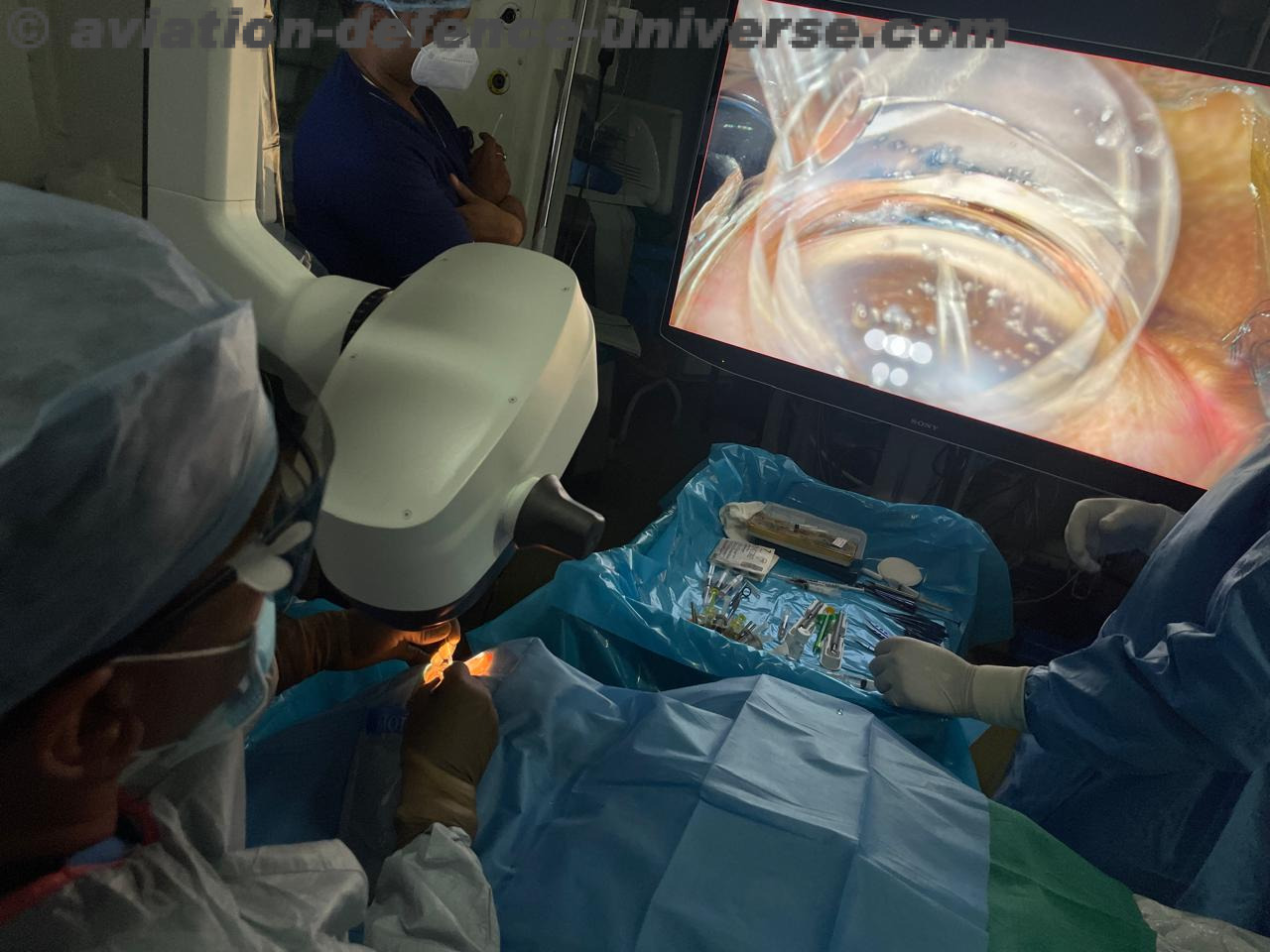- Amit Ranjan Verma introduces IPAS, Bio-Logon & Mantra’s Mission for Smart Defence Access
By Sangeeta Saxena
New Delhi. 28 April 2025. Mantra Soft Tech’s journey from a startup in Ahmedabad to a global leader in biometrics and RFID solutions has been nothing short of remarkable. With exports to over 40 countries and a strong foothold in national identity programs worldwide, the company has carved a niche for itself in the highly competitive authentication technology space. Today, Mantra is ranked among the top three companies globally in biometric and RFID technology, bringing pride to India’s electronic manufacturing sector.
At Milipol India, Mantra’s showcase reflected a deep understanding of the evolving needs of security forces. Their flagship offering, the Integrated Personal Authentication and Analysing System (IPAS), combines facial recognition with breath analysis to create a smart, AI-enabled entry management solution. Designed for high-security establishments like defence bases, critical infrastructure, and sensitive industrial areas, IPAS ensures real-time monitoring of personnel fitness, location tracking, and movement analysis — enhancing operational readiness and safety. In a detailed interaction, Col. Amit Ranjan Verma (Retd.), now steering Mantra’s defence engagements, spoke to ADU about the company’s offerings, defence projects, customization capabilities, and their roadmap for securing India’s future.
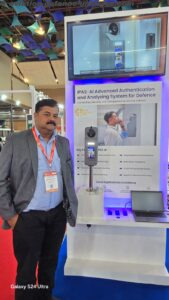 ADU. We are meeting here at Milipol. What is Mantra showcasing at this event?
ADU. We are meeting here at Milipol. What is Mantra showcasing at this event?
Col. Amit Ranjan Verma. Thank you! Before I talk about Mantra, a quick introduction. I am Colonel Amit Verma, having served 27 years in the Indian Army. After my PMR, I spent some time in the corporate sector before joining Mantra Soft Tech a few months ago. Mantra is headquartered in Ahmedabad with its manufacturing plant also based there. Founded in 2006, we are currently ranked as the world’s number three in biometric and RFID technologies, exporting to 40–50 countries and running several national identity programs. We are Gujarat’s largest electronic manufacturing setup.
ADU. What are the key solutions Mantra is presenting at Milipol India?
Col. Amit Ranjan Verma. We have picked four key solutions. First is IPAS — Integrated Personal Authentication and Analysing System. It combines AI-enabled facial recognition with a breath analyser. Installed at an establishment’s entry point, it authenticates personnel and checks alcohol content. If a person is under influence, it identifies not just the presence of alcohol but also its quantum. It also tracks individual movements through Type 2 cameras networked across multiple locations inside a campus, generating real-time MIS reports.
ADU. How accurate is the breath analysis technology?
Col. Amit Ranjan Verma. It is highly accurate. The system can detect blood alcohol content (BAC) levels at a threshold of 0.05%, and the error margins are minimal. Personnel simply stand within one metre, and the system reads facial features and breath analysis simultaneously.
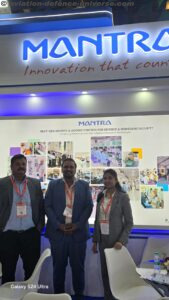 ADU. What other solutions are you showcasing?
ADU. What other solutions are you showcasing?
Col. Amit Ranjan Verma. The second solution is Bio-Logon, a cybersecurity tool. It adds biometric security layers to computer systems through fingerprint-based, two-factor, or multi-factor authentication. Multi-factor includes fingerprint scan, OTP/password verification, and smart card access. We’ve already deployed it at NTRO and are introducing it to other defence organisations.
ADU. And the third?
Col. Amit Ranjan Verma. The third is a basic attendance authentication system, which functions like IPaS but without the breath analyser component. It’s focused on simple access control and workforce tracking.
ADU. Are these systems already in use across the armed forces?
Col. Amit Ranjan Verma. Yes, notably through the Armed Forces Secure Access Card (AFSEC) project. AFSEC aims to unify access control across Army, Navy, and Air Force establishments. Navy has already rolled out the system using Mantra’s devices, with the Air Force and Army following soon. The system recognises multiple personnel categories — from officers to civilians to casual workers — through different types of smart cards or tokens.
ADU. How is the technology tailored for different clients?
Col. Amit Ranjan Verma. We work closely with system integrators like Tech Mahindra and with consulting partners like Ernst & Young. Based on the client’s operational needs, we customize solutions. Our products are part of an interoperable, secure ecosystem to ensure seamless integration across services. We’re also working with organisations like the Coast Guard for specific requirements.
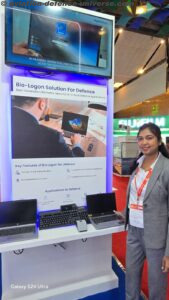 ADU. How has the response at Milipol India been for Mantra?
ADU. How has the response at Milipol India been for Mantra?
Col. Amit Ranjan Verma. It’s been excellent. I was also part of a panel on border management. Events like these are critical because they show the gap between available technologies and current deployments. Our aim is to bridge that gap with advanced, indigenous solutions suited to India’s defence forces.
ADU. Where does Mantra stand in it’s ecosystem?
Col. Amit Ranjan Verma. With a robust manufacturing base, a strong Make in India spirit, and cutting-edge solutions spanning biometrics, AI, and secure access control, Mantra Soft Tech is fast becoming a vital player in India’s defence and homeland security landscape.
ADU. Where do you see yourself in the future?
Col. Amit Ranjan Verma. Mantra wants to use its solid R&D base and close ties with defense players to not just be a gadget maker but also a complete security solutions supplier. It is clearly in line with India’s ambition of becoming self-reliant in cutting-edge defence and homeland security technologies with forthcoming partnerships aimed at Coast Guard, paramilitary forces, and vital infrastructure projects.
Under the leadership of professionals like Col. Amit Ranjan Verma (Retd.), the company is committed to empowering India’s forces with smarter, safer, and more integrated technologies for the future. Looking ahead, Mantra Soft Tech is poised to expand its capabilities beyond traditional biometrics into the broader realms of artificial intelligence, smart surveillance, and integrated homeland security solutions. With the defence and security landscape rapidly evolving, the company plans to invest heavily in AI-driven analytics, behaviour recognition systems, and next-generation access control technologies that can adapt to real-time threat scenarios.
As told to Sangeeta Saxena












